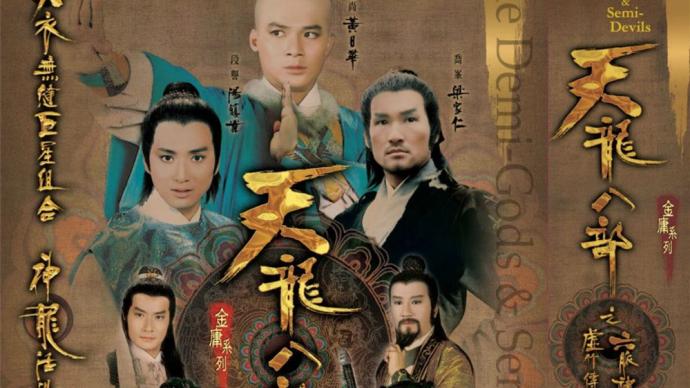
Editor's note: This is a nostalgic theater.
Since the late 1970s, TVB has gradually adapted Jin Yong's novels into TV series one by one. In March 1982, TVB put "Dragon Babu" on the screen for the first time. Even in the past 40 years, the 82 version of "Dragon Babu" is still a classic martial arts drama, regardless of the plot, theme music and character settings.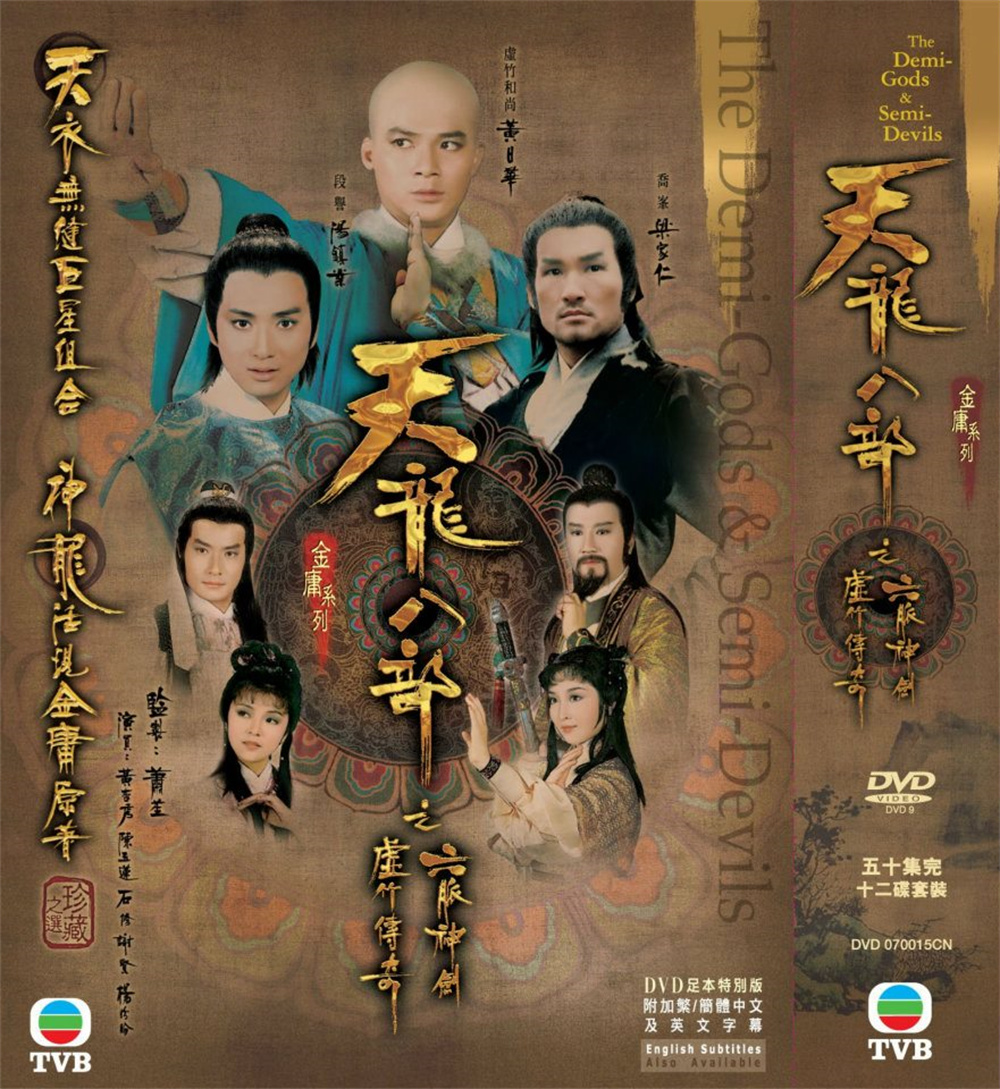
The 82 version of "Dragon Babu" is a big investment work of TVB, which can be seen from the list of main playwrights. Director Xiao Sheng, screenwriters such as Guan Zhanbo, Cen Guorong, and Liang Yongmei are all familiar names to fans of Hong Kong dramas. The length of the play is also huge, with a full 50 episodes. It is 15 more episodes than TVB's first Jin Yong drama, the 76th edition of "The Book and Sword", and twice as many as TVB's 78th edition of "Eternal Dragon Slayer".
The lineup of the 82 edition of "Dragon Babu" is also star-studded. The three male protagonists are Tang Zhenye and Huang Rihua, two of the wireless five tigers led by Liang Jiaren; the female lead actors Chen Yulian, Huang Xingxiu, Yang Panpan, and Chen Fusheng were all famous actresses at that time. In the supporting roles, Xie Xian, Shi Xiu (Chen Shuoxu), Shi Jian, Guan Haishan, Liu Zhaoming and Yang Zelin are all regulars in martial arts dramas in the 1980s.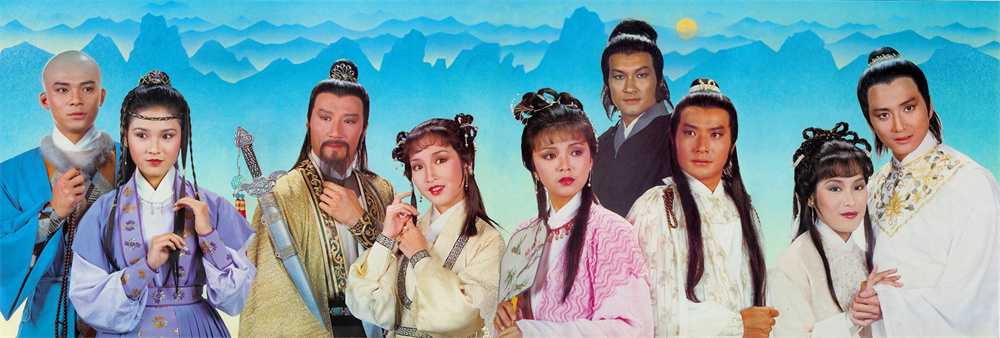
The Yuanzu version of Wang Yuyan is played by Chen Yulian, who has a classical atmosphere. She was the dream lover of the screen at that time. Interestingly, the half-brothers Zhong Ling and Ah Zhu are both played by Huang Xingxiu. Huang Xingxiu showed Zhong Ling's cuteness and Azhu's wisdom. Later, although there are heroines who play two roles at the same time, they are both Azhu and Azi, who share the same mother and father, such as the 1990 Taiwan CTV version and the 2013 mainland version.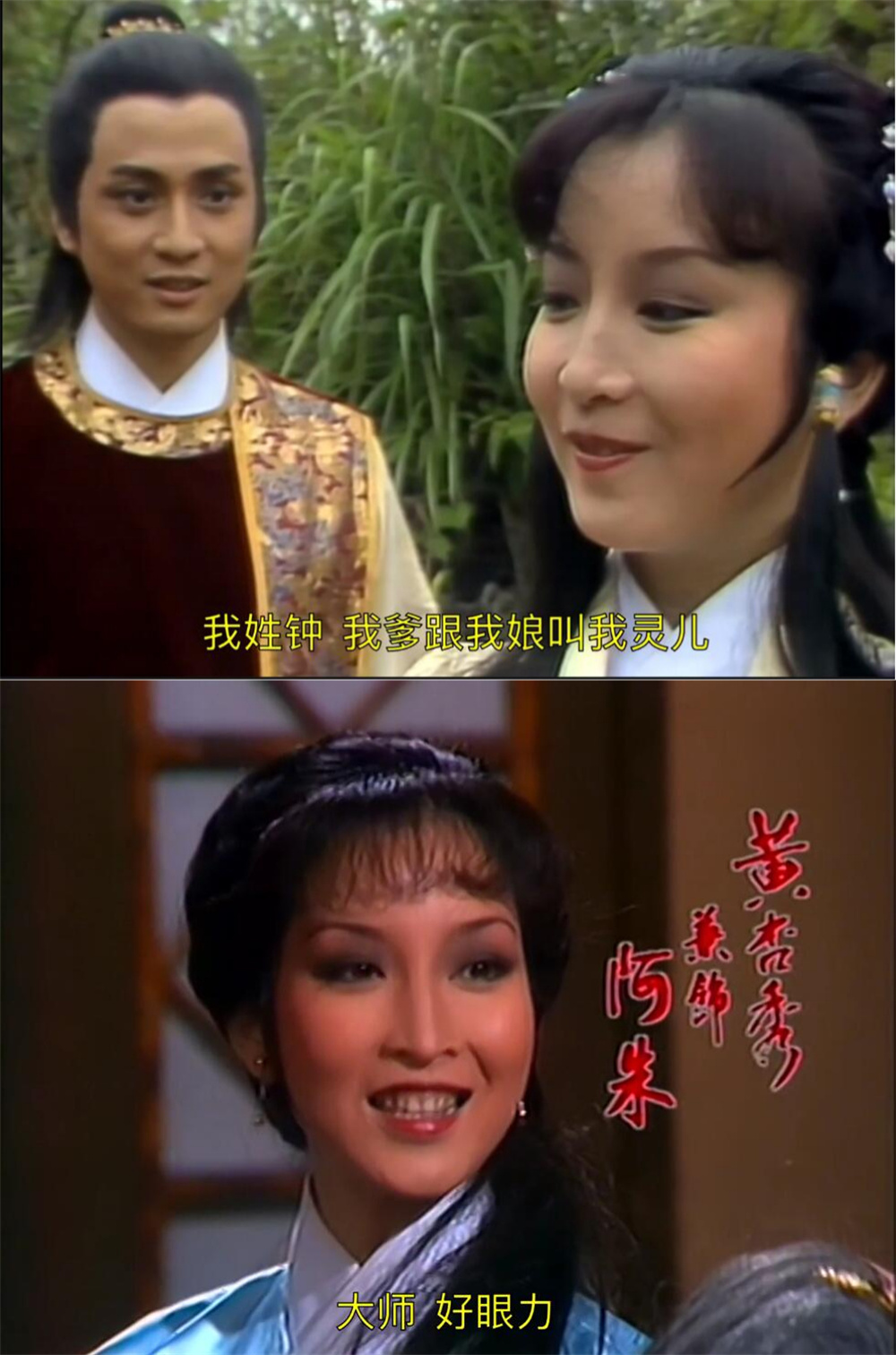
Another supporting role who successfully came out of the circle is Liu Zhaoming's version of Duan Yanqing, which restores the scarred appearance in the original work. Liu Zhaoming's image of a tyrant who is not angry and powerful is also in line with his past prince status. The 97 version of Li Hongjie only restores the disabled legs and the character is too fat, which is not in line with the experience of the vicissitudes of life.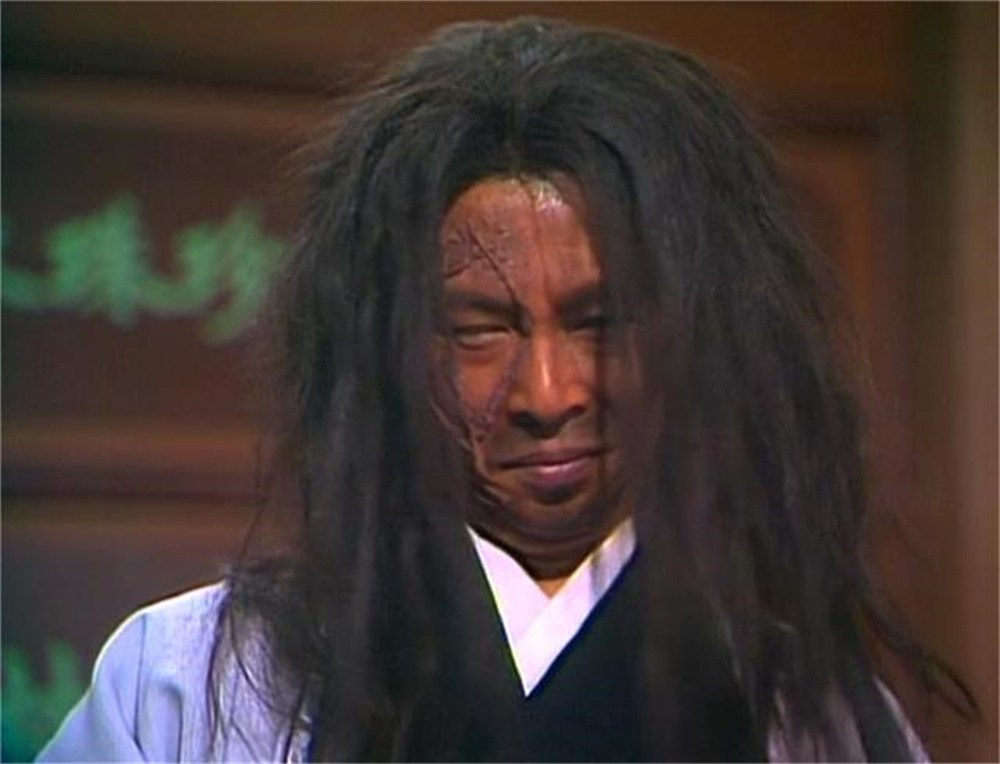
Beginning in September 1963 and finishing in May 1966, "Dragon and Babu" is Jin Yong's later work, and his writing and thinking have been close to the realm. "Tian Long Ba Bu" is a novel with a strong Buddhist flavor, and the name of the novel is also derived from the Buddhist term of the same name. The Tianlong Babu itself is the eight kinds of Shinto monsters in Buddhist mythology. In this case, the protagonist of the original novel must have a very deep connection with Buddhism. The whole book begins with Duan Yu (the prototype is Duan Zhengyan, also known as He Yu, the monk of Dali, who has received Buddhist precepts since childhood), and ends with Duan Yu. The main plot of the story is also carried out with Duan Yu. Historically, the Dali Kingdom was a Buddhist country, and many monarchs abstained from the throne and became monks. And the occurrence of the story also starts from the battle of the Infinite Sword Sect in the novel.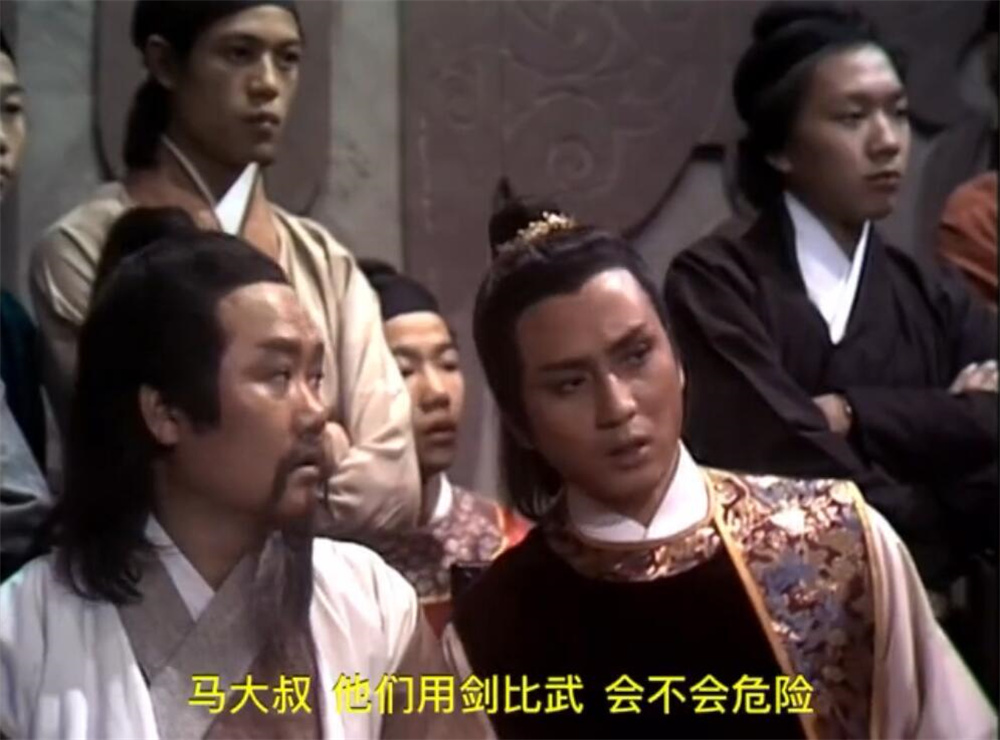
The theme songwriters of the two TV series are the brilliant combination of Huang Zhan and Gu Jiahui. " Liang Wang Yan Shui " of "Six Meridians Excalibur" is a classic song that feels love, and it is a creative MTV. Through the OP, you can see the relationship between the main characters in the play. Similar to the 97th edition of "The Difficult Sutra", the OP first appeared in the eight gods and monsters in Buddhism. Duan Zhengchun and Duan Yu and their son lingered in front of several women. After Xiao Feng put down the seriously injured A Zhu in the rain, A Zi held an umbrella for him. Although "Liang Wang Yan Shui" is the theme song of Duan Yu's first episode, the content of the lyrics is to describe the love between Xiao Feng and A Zhu, "Daughter is crazy, hero is crazy, spit out a lot of kindness and love. Poetry, how drunk is left in my heart."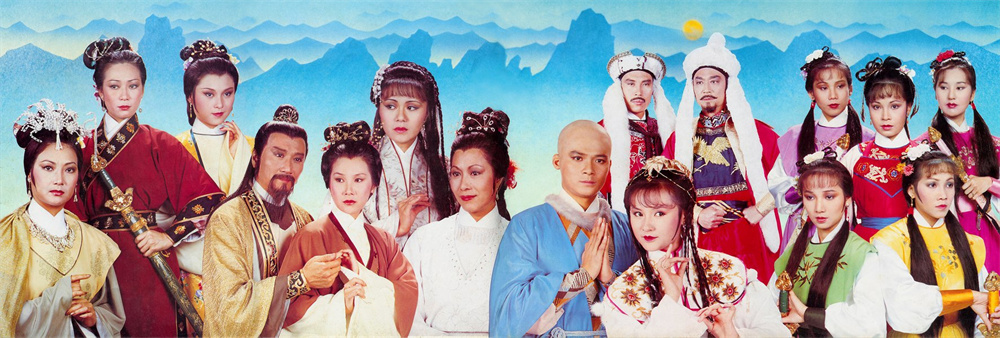
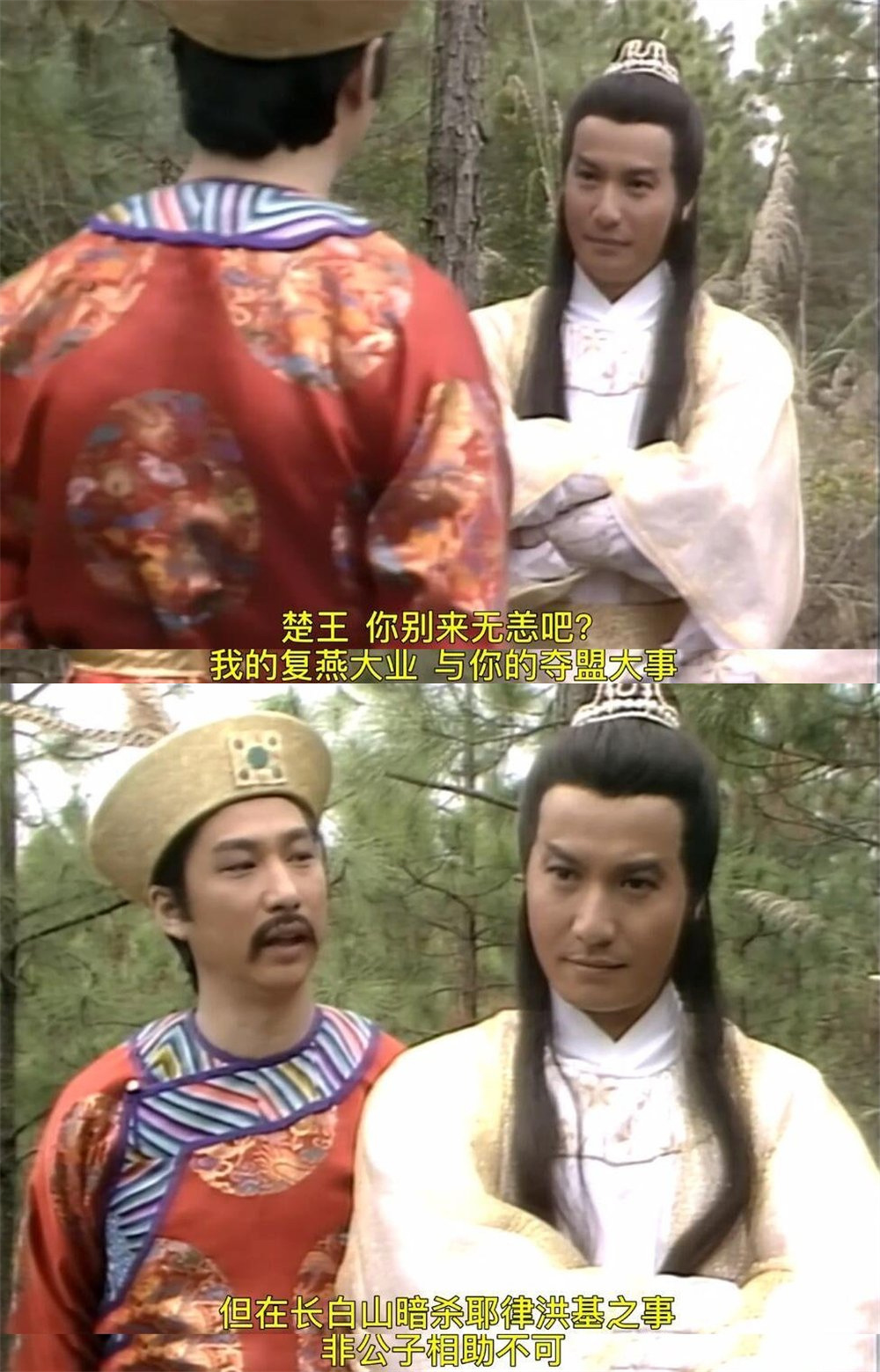
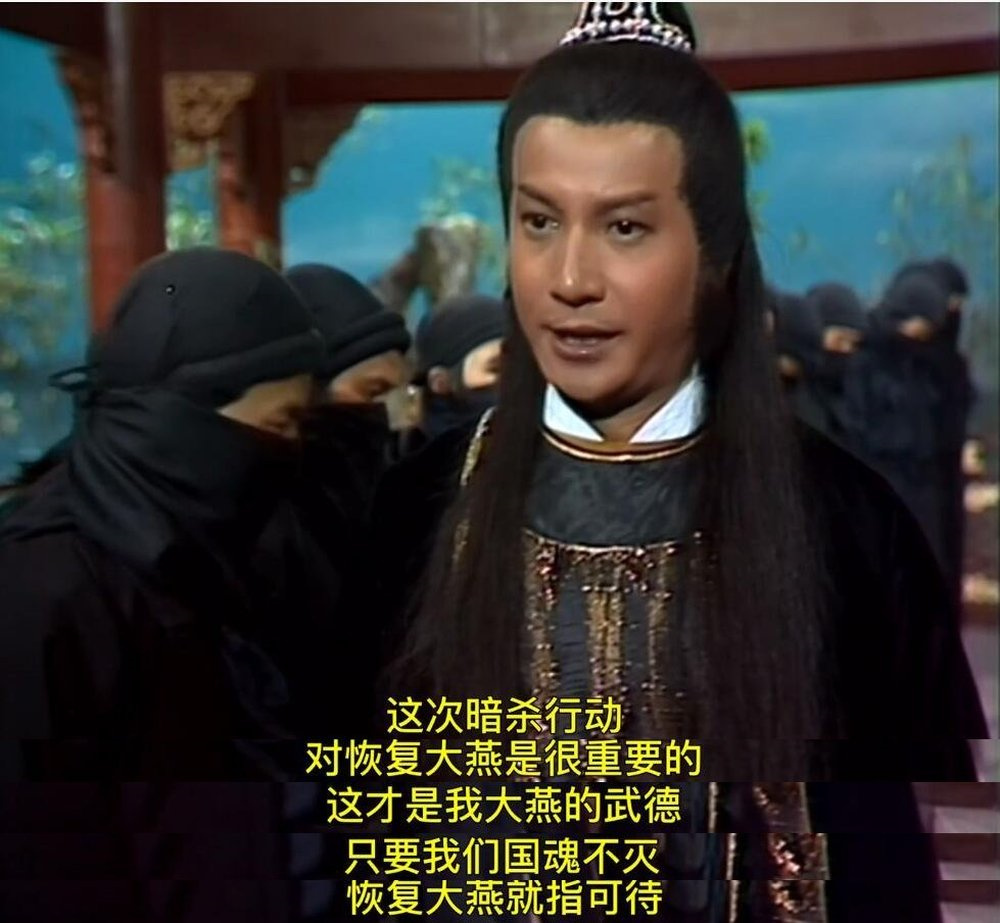
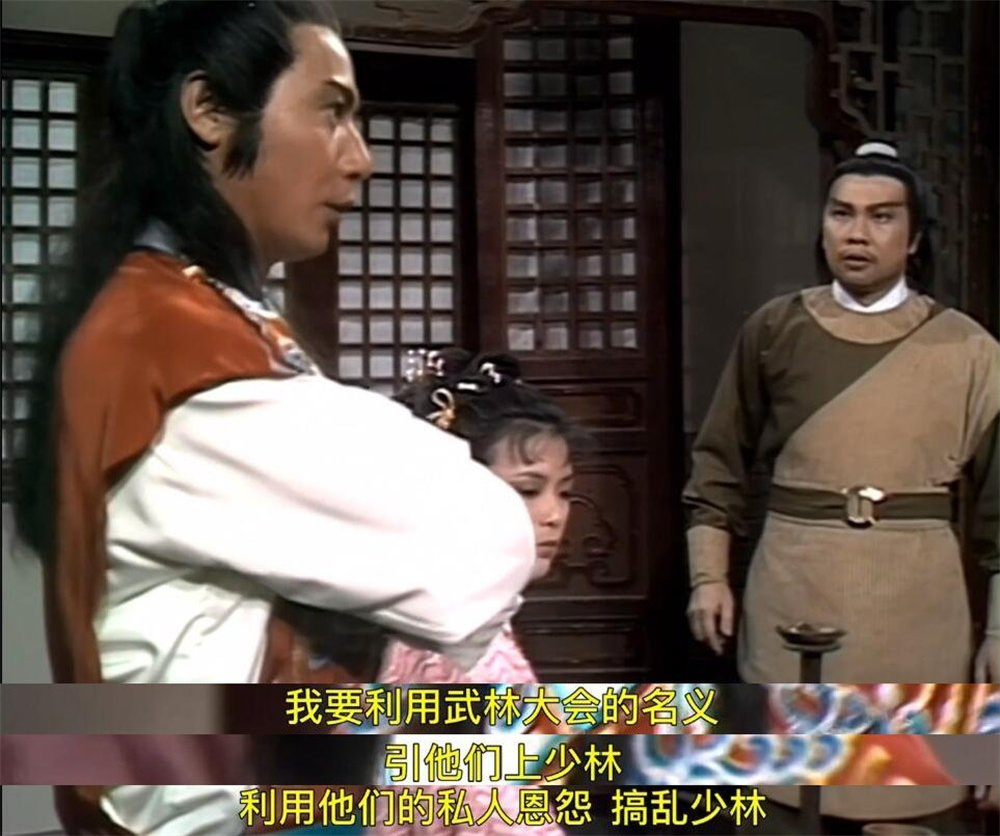
Like "Six Meridians Excalibur", the theme song "A Thousand Waters and Thousands of Mountains" in the second "Legend of Xuzhu " is not a tribute to Xuzhu, but a hymn to Xiao Feng. "Two Forgets in Smoke and Water" has a graceful style, while "Thousands of Waters and Thousands of Mountains" is heroic. In the majestic sound of music, the main characters rode their horses one after another, and the whole song contains Xiao Feng's spirit of overcoming obstacles. The sentence "but he laughed at the world and tried to limit the way of Han and Hu" expressed Xiao Feng's wish for Song and Liao peace. The lyrics perfectly combine Xiao Feng's personal heroism with his family and country feelings.
If you only watch "Six Meridians Excalibur", the 82 version should be the closest version to the original novel among the many "Dragon Babu" movies and TV dramas. But the second part may be forced to add drama to Xuzhu, Murong Fu, and Murong Bo because of the title of "The Legend of Xu Bamboo"; plus there are a lot of original plots, resulting in confusion in the logic of the plot and the force value of the characters.
The original thought of "Tianlong Babu" is the thought of "impermanence" in Buddhism. Its character setting and character ending are also the most bizarre among many martial arts novels. Many characters struggle to achieve their own impossible endings. Prince Duan Yu, who was born with a golden key in his hand, does not love Jiangshan, but only the beauty Wang Yuyan. Qiao Feng, the idol of the Song Dynasty who fought against Western Xia and Liao foreign nationals, is actually a native of Liao. The most devout Shaolin disciple, Xu Zhu, turned out to be the head of the Taoist Xiaoyao sect, and had a relationship with the princess. Murong and his son wanted to restore the country and become emperor. Jiu Mozhi is obsessed with being the best in the world in martial arts. A rough look at "Dragon Babu" is nothing to ask for. By the end, most of the characters were actually seen through. Xiao Feng let go of his obsession with clan affiliation. Xu Zhu chose to marry. Jiu Mozhi gave up martial arts and chose Buddhism. Xiao Yuanshan and Murong Bo gave up revenge and restoration, and shaved their fortunes. Therefore, Jin Yong asked Duan Yu of the revised version to let go of his obsession with Wang Yuyan. Correct the heart, and finally get real liberation.
However, the 82 version of Murong Bo was not enlightened, but hid beside the sweeping monk and continued to peep at Shaolin martial arts. The Sweeping Monk's force value is also the most magical in the versions of all dynasties, able to resolve the fight between Xiao Yuanshan and Murong Bo; After Murong Bo and Jumozhi killed the monk who was sweeping the floor, they successively controlled the Shaolin Temple and the Beggar Gang; then, using this as a capital, they persuaded the Liao Emperor Yelu Hongji to join forces to invade Song.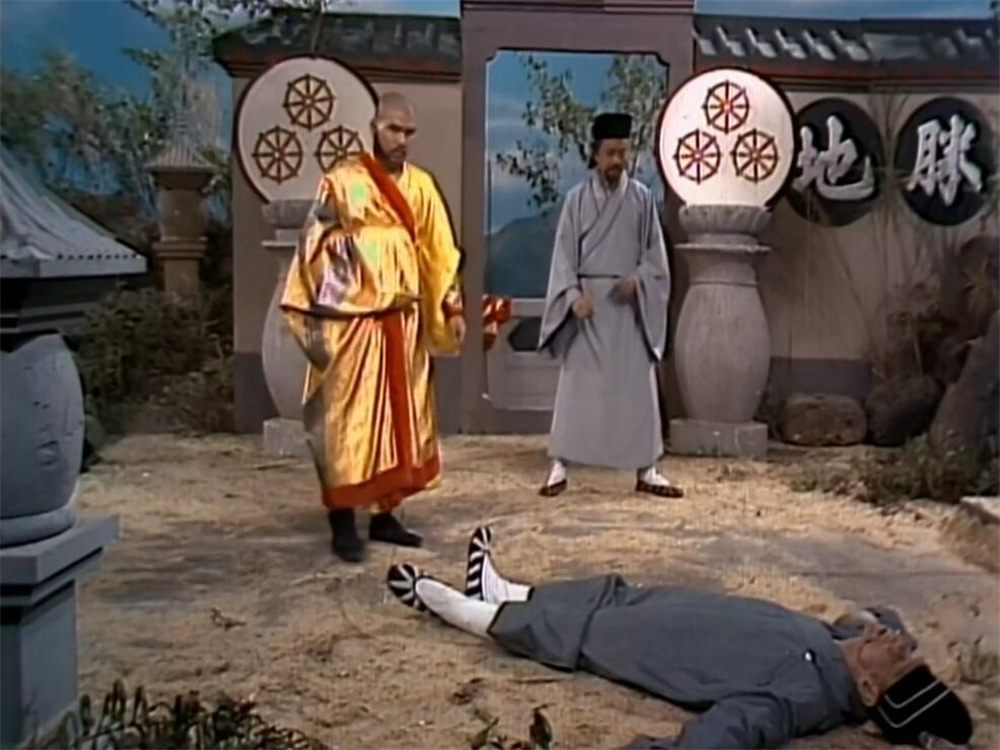
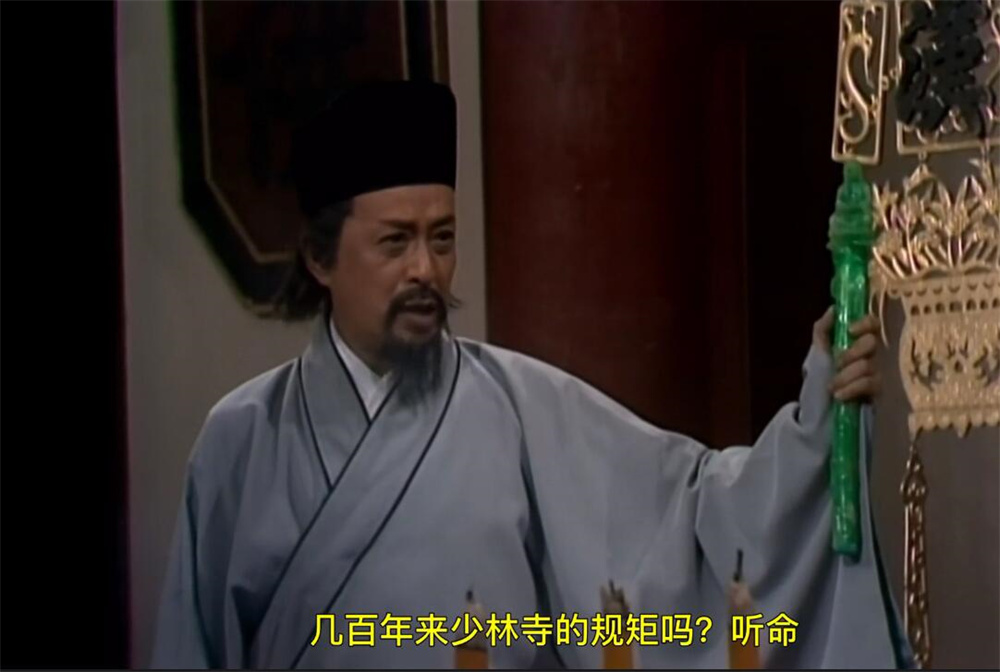
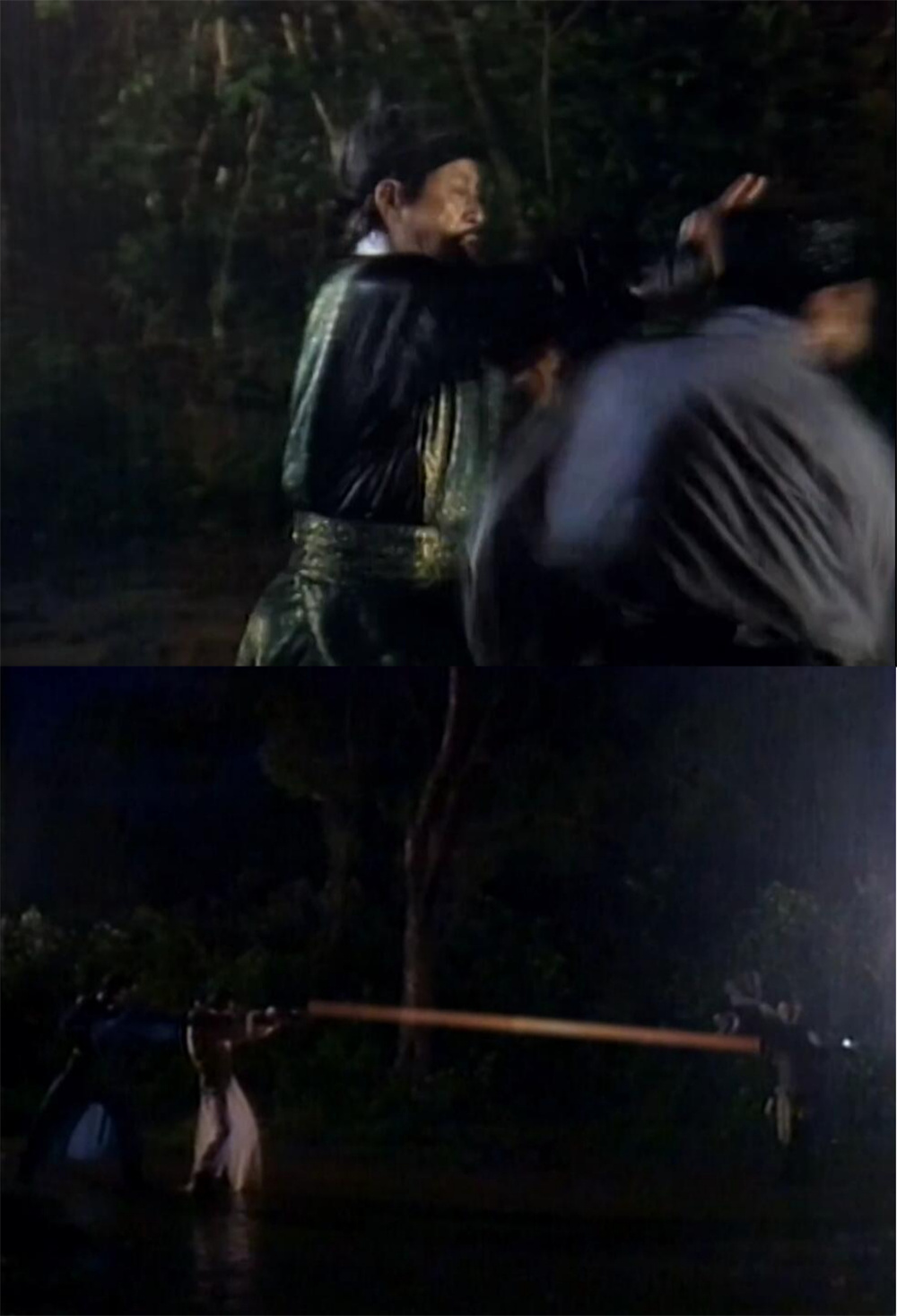
Since the late 1970s, TVB has gradually adapted Jin Yong's novels into TV series one by one. In March 1982, TVB put "Dragon Babu" on the screen for the first time. Even in the past 40 years, the 82 version of "Dragon Babu" is still a classic martial arts drama, regardless of the plot, theme music and character settings.

"Tian Long Ba Bu" poster
Star brightThe 82 version of "Dragon Babu" is a big investment work of TVB, which can be seen from the list of main playwrights. Director Xiao Sheng, screenwriters such as Guan Zhanbo, Cen Guorong, and Liang Yongmei are all familiar names to fans of Hong Kong dramas. The length of the play is also huge, with a full 50 episodes. It is 15 more episodes than TVB's first Jin Yong drama, the 76th edition of "The Book and Sword", and twice as many as TVB's 78th edition of "Eternal Dragon Slayer".
The lineup of the 82 edition of "Dragon Babu" is also star-studded. The three male protagonists are Tang Zhenye and Huang Rihua, two of the wireless five tigers led by Liang Jiaren; the female lead actors Chen Yulian, Huang Xingxiu, Yang Panpan, and Chen Fusheng were all famous actresses at that time. In the supporting roles, Xie Xian, Shi Xiu (Chen Shuoxu), Shi Jian, Guan Haishan, Liu Zhaoming and Yang Zelin are all regulars in martial arts dramas in the 1980s.

Main characters in the play
The rough Liang Jiaren version of Xiao (Qiao) Feng, the appearance is very consistent with the image of Yan Zhao Dahan in the original work, "The person is very burly, in his thirties, wearing an old gray robe, slightly tattered, thick eyebrows and big eyes, and a high nose. He has a broad mouth and a square face with the national character, quite the color of wind and frost." Liang Jiaren also plays the young Xiao Yuanshan in this play. Interestingly, 31 years later, he played the role of the elderly Xiao Yuanshan in the 2013 edition of "Dragon and Babu". His two younger brothers were also very successful. Tang Zhenye's version of Duan Yu's book is full of books, but he is not deeply involved in the world; Huang Rihua's version of Xuzhu is honest and cute, and he is compassionate.The Yuanzu version of Wang Yuyan is played by Chen Yulian, who has a classical atmosphere. She was the dream lover of the screen at that time. Interestingly, the half-brothers Zhong Ling and Ah Zhu are both played by Huang Xingxiu. Huang Xingxiu showed Zhong Ling's cuteness and Azhu's wisdom. Later, although there are heroines who play two roles at the same time, they are both Azhu and Azi, who share the same mother and father, such as the 1990 Taiwan CTV version and the 2013 mainland version.

Huang Xingxiu as half-sister
In terms of supporting roles, especially the individual villain images are also very successful. The role of Murong Fu was played by Shi Xiu in a high-spirited, sinister and sinister manner, and looked like the original. His four great leaders, Deng Baichuan, Gong Yeqian, Baodi and Evil, also appeared in full. In the 97 edition, only two appeared.Another supporting role who successfully came out of the circle is Liu Zhaoming's version of Duan Yanqing, which restores the scarred appearance in the original work. Liu Zhaoming's image of a tyrant who is not angry and powerful is also in line with his past prince status. The 97 version of Li Hongjie only restores the disabled legs and the character is too fat, which is not in line with the experience of the vicissitudes of life.

Duan Yanqing restores the image of the novel
original starting pointBeginning in September 1963 and finishing in May 1966, "Dragon and Babu" is Jin Yong's later work, and his writing and thinking have been close to the realm. "Tian Long Ba Bu" is a novel with a strong Buddhist flavor, and the name of the novel is also derived from the Buddhist term of the same name. The Tianlong Babu itself is the eight kinds of Shinto monsters in Buddhist mythology. In this case, the protagonist of the original novel must have a very deep connection with Buddhism. The whole book begins with Duan Yu (the prototype is Duan Zhengyan, also known as He Yu, the monk of Dali, who has received Buddhist precepts since childhood), and ends with Duan Yu. The main plot of the story is also carried out with Duan Yu. Historically, the Dali Kingdom was a Buddhist country, and many monarchs abstained from the throne and became monks. And the occurrence of the story also starts from the battle of the Infinite Sword Sect in the novel.

The story begins with Duan Yu watching the battle of the Infinite Sword Sect
The 82 edition was divided into two parts, "Six Meridians Excalibur" (30 episodes) and "The Legend of Xuzhu" (20 episodes), and the storylines were mainly Duan Yu and Xuzhu. "Six Meridians Excalibur" basically follows the characters and plot of the original work, and Duan Yu is the first protagonist. The 1997 version of "Dragon Babu", which most mainland audiences are familiar with, has actually made a substantial revision to the original work and chose Xiao Feng as the first protagonist. In the first episode, Xiao Feng appeared and led the beggar gang to attack Yipintang in Xixia, and fought against the four villains and Murong Fu who pretended to be Li Yanzong. This is actually an expansion of Xiao Feng's heroic deeds of the beggar gang in Xingzilinli in the original work. The 82 edition did not let Xiao Feng and Murong Fu appear in advance, and did not let the two heroes of the north and south get to know each other in advance.The theme songwriters of the two TV series are the brilliant combination of Huang Zhan and Gu Jiahui. " Liang Wang Yan Shui " of "Six Meridians Excalibur" is a classic song that feels love, and it is a creative MTV. Through the OP, you can see the relationship between the main characters in the play. Similar to the 97th edition of "The Difficult Sutra", the OP first appeared in the eight gods and monsters in Buddhism. Duan Zhengchun and Duan Yu and their son lingered in front of several women. After Xiao Feng put down the seriously injured A Zhu in the rain, A Zi held an umbrella for him. Although "Liang Wang Yan Shui" is the theme song of Duan Yu's first episode, the content of the lyrics is to describe the love between Xiao Feng and A Zhu, "Daughter is crazy, hero is crazy, spit out a lot of kindness and love. Poetry, how drunk is left in my heart."

The scene where Duan Zhengchun lingers among all the lovers is quite impressive.
"Six Meridians Excalibur" does not simplify Duan Yu's plot, and does not add drama to Xiao Feng because he is the number one hero. The plot basically matches the original work. The only supporting role with too many scenes is Murong Fu. In the original work, Murong Fu had only four subordinates, and in the 97 edition there were as few as two. With such a staff configuration, it is simply whimsical to want to be an emperor. The screenwriter of the 82 edition greatly increased the number of Murong Fu's staff, and changed the Murong family into an assassination community organization; it also increased Murong Fu's interpersonal relationship. The Liao Kingdom's Chu King Nelugu and Murong Fu were allies. Not only that, but Murong Fu was the mastermind behind the Shaolin Conference. The revised Murong Fu has power and intrigue, and it is not known how much higher than the later version. As a result, Shi Xiu became the most charismatic and closest Murong Fu ever to be an emperor.
Murong Fu colluded with Nielugu, King of Chu of Liao Kingdom

Murong Fu has his own assassination organization

Murong Fu is the mastermind behind the Shaolin Conference.
Magic endingLike "Six Meridians Excalibur", the theme song "A Thousand Waters and Thousands of Mountains" in the second "Legend of Xuzhu " is not a tribute to Xuzhu, but a hymn to Xiao Feng. "Two Forgets in Smoke and Water" has a graceful style, while "Thousands of Waters and Thousands of Mountains" is heroic. In the majestic sound of music, the main characters rode their horses one after another, and the whole song contains Xiao Feng's spirit of overcoming obstacles. The sentence "but he laughed at the world and tried to limit the way of Han and Hu" expressed Xiao Feng's wish for Song and Liao peace. The lyrics perfectly combine Xiao Feng's personal heroism with his family and country feelings.
If you only watch "Six Meridians Excalibur", the 82 version should be the closest version to the original novel among the many "Dragon Babu" movies and TV dramas. But the second part may be forced to add drama to Xuzhu, Murong Fu, and Murong Bo because of the title of "The Legend of Xu Bamboo"; plus there are a lot of original plots, resulting in confusion in the logic of the plot and the force value of the characters.
The original thought of "Tianlong Babu" is the thought of "impermanence" in Buddhism. Its character setting and character ending are also the most bizarre among many martial arts novels. Many characters struggle to achieve their own impossible endings. Prince Duan Yu, who was born with a golden key in his hand, does not love Jiangshan, but only the beauty Wang Yuyan. Qiao Feng, the idol of the Song Dynasty who fought against Western Xia and Liao foreign nationals, is actually a native of Liao. The most devout Shaolin disciple, Xu Zhu, turned out to be the head of the Taoist Xiaoyao sect, and had a relationship with the princess. Murong and his son wanted to restore the country and become emperor. Jiu Mozhi is obsessed with being the best in the world in martial arts. A rough look at "Dragon Babu" is nothing to ask for. By the end, most of the characters were actually seen through. Xiao Feng let go of his obsession with clan affiliation. Xu Zhu chose to marry. Jiu Mozhi gave up martial arts and chose Buddhism. Xiao Yuanshan and Murong Bo gave up revenge and restoration, and shaved their fortunes. Therefore, Jin Yong asked Duan Yu of the revised version to let go of his obsession with Wang Yuyan. Correct the heart, and finally get real liberation.
However, the 82 version of Murong Bo was not enlightened, but hid beside the sweeping monk and continued to peep at Shaolin martial arts. The Sweeping Monk's force value is also the most magical in the versions of all dynasties, able to resolve the fight between Xiao Yuanshan and Murong Bo; After Murong Bo and Jumozhi killed the monk who was sweeping the floor, they successively controlled the Shaolin Temple and the Beggar Gang; then, using this as a capital, they persuaded the Liao Emperor Yelu Hongji to join forces to invade Song.

Murong Bo and Jiu Mozhi join forces to plot against the sweeping monk
What is puzzling is that the green jade Buddha stick, the token of the head of the Shaolin Temple in the play, is very similar to the token of the beggar gang leader's dog-beating stick (the alias happens to be the green jade stick). It is actually from Wo Longsheng's novel "The Jade Hairpin League". "The green jade Buddha stick is about one foot five inches long, and a Buddha statue is carved on the top. The whole body is bright and crystal clear." Murong Bo, who only appeared at the end of the play, became the final boss.
The green jade staff borrowed from Wo Longsheng's novel.
Since Murong Bo and his son continued to do evil, all the grievances and hatreds must be settled eventually. In order for Duan Yu to have only one wife, Mu Wanqing unfortunately sacrificed. After Murong Fu killed Mu Wanqing, he died at the hands of his own agency. After Xiao Feng committed suicide, Duan Yu and Xu Zhu looked for help everywhere and beat Murong Bo. Except for Ye Erniang, the three villains who had rehabilitated and lived in seclusion in the mountains and forests were all changed to die at the hands of Murong Bo; the same was true of the four swords of Meilan, Bamboo and Juju. In the last battle, Xiao Yuanshan, Duan Yu, and Xu Zhu worked together to defeat Xiao Yuanshan.
The three teamed up to defeat Murong Bo.
The TVB martial arts films of the 1980s liked to arrange an ultimate showdown. It seems so, in order to understand all the grievances. The ending of "seeing through everything" in the original "Dragon Babu" has been changed to a conventional ending. The same is true of the 1989 version of "Xia Ke Xing", which ended in a battle between Shi Potian, Shi Zhongyu brothers and Bei Hai Shi.Related Posts